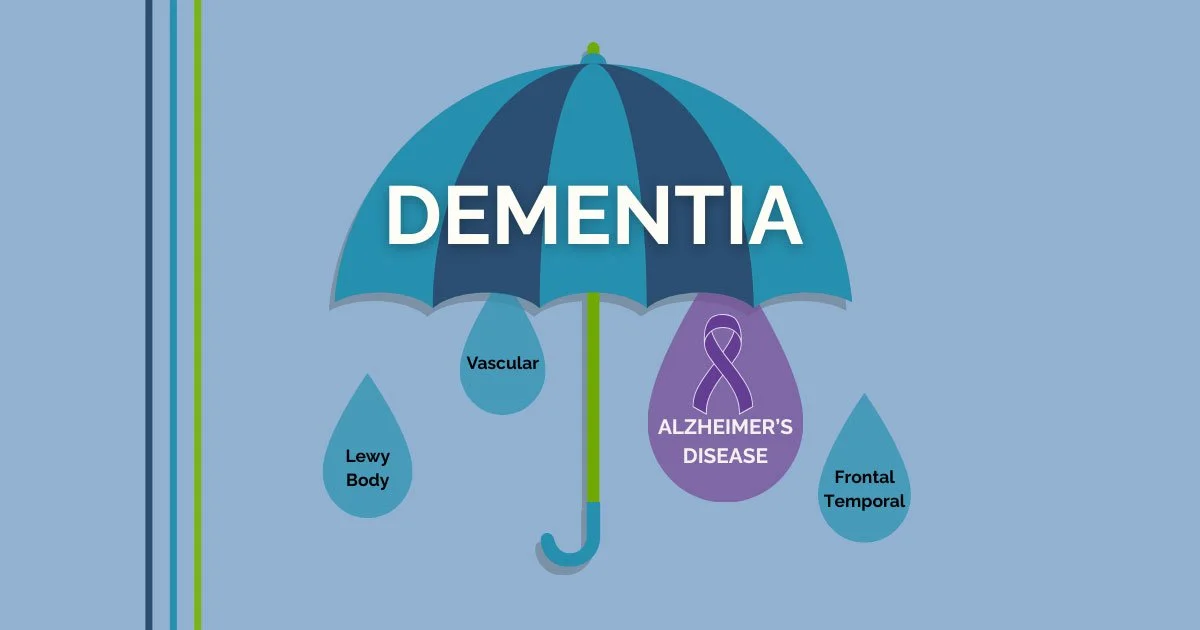Dementia and Alzheimer’s Disease Aren’t the Same Thing
As a trusted partner in advancing neurological research, Be Well Health is committed to educating communities and caregivers about brain health. A question we hear often—from participants, families, and providers alike—is: What’s the difference between Alzheimer’s disease and dementia?
While the terms are frequently used interchangeably, the distinction is not just semantic—it has real implications for diagnosis, care, and research. Understanding this difference is vital in helping families navigate care decisions, clinical trials, and support services.
How can you tell the difference?
Dementia: An Umbrella Term, Not a Diagnosis
Dementia is not a single disease. Instead, it’s a syndrome—a general term that describes a decline in memory, reasoning, or other cognitive functions that interferes with daily life. Dementia can be caused by a variety of conditions, including:
Alzheimer’s disease (most common)
Vascular dementia
Lewy body dementia
Frontotemporal dementia
Mixed dementia (a combination of two or more types)
Think of dementia as the broader category—like "fever"—while Alzheimer’s is one potential cause, just as the flu or an infection might cause a fever.
Alzheimer’s Disease: The Most Common Form of Dementia
Alzheimer’s disease is a specific brain disorder and the leading cause of dementia. It’s characterized by the accumulation of beta-amyloid plaques and tau tangles in the brain, leading to the death of brain cells over time.
Symptoms of Alzheimer’s often begin with subtle memory lapses and gradually progress to language difficulties, disorientation, mood changes, and eventually loss of independence. Diagnosis is typically made through clinical evaluation, neurological testing, and in some cases, biomarker or imaging studies.
Why the Distinction Matters
Understanding the difference between dementia and Alzheimer’s matters because:
Accurate Diagnosis Leads to Better Care: Treatments vary depending on the cause of dementia. Alzheimer’s has specific medications approved to manage symptoms, while other forms (like vascular dementia) may be managed by addressing cardiovascular risk factors.
Research Is Cause-Specific: Clinical trials are typically designed for specific diagnoses. Enrolling participants with the correct type of dementia ensures the validity of the research and the safety of participants.
Family and Caregiver Support Varies: Alzheimer’s-specific resources may not fully address the needs of someone with Lewy body dementia or frontotemporal degeneration. Tailored support makes a difference.
Treatment Options: With the recent FDA-approved infusion therapy, there are new ways to treat Alzheimer’s patients. This class of medications targets amyloid plaques to slow disease progression, offering more than symptom management by addressing one of Alzheimer’s core pathologies.
At Be Well Health, we believe that knowledge is the first step toward action. Understanding the difference between dementia and Alzheimer’s empowers families to seek earlier diagnoses, advocate for better care, and make informed decisions about clinical research opportunities.
As the prevalence of Alzheimer’s continues to rise, so must our collective commitment to awareness, education, and innovation. Whether you’re a caregiver, a healthcare provider, or simply someone who wants to make a difference, you have a role to play in the fight against this devastating disease.
Together, we illuminate the path to better medicine, better care, and more hope.
For a deeper dive, explore:


